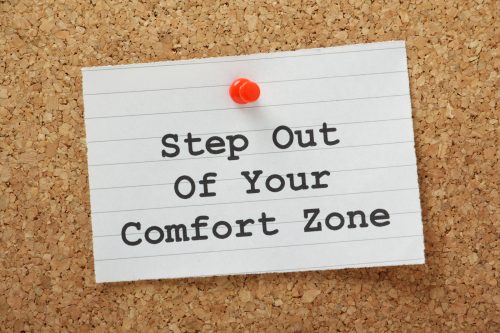When people learned that you are working from home, the first thing that comes to their minds is, “Lucky for you. You can just lie around and still get paid.” They thought home-based workers have all the luxury of time to play around and just work a little.
Yes, there are many perks to working from home, like taking breaks when you want or need to, just work in your pajamas, no need to travel for hours or get caught in the traffic. But like any other job, there is also a downside to it. Working from home is not always a bed of roses.
“Employees often find themselves struggling to balance workplace demands with a desire to maintain strong relationships or ensure quality family time. That struggle can be emotionally draining and – if allowed to fester without intervention – can lead to more serious mental and/or physical concerns,” explains Nels Magelssen, PsyD, PS.

Source: meleciaathome.com
Distractions Kill Work-Life Balance
Managing time is the hardest part of being a work-at-home employee because there are more distractions at home than in an office setting. There is no boss to call your attention to get you back on track. If other things eat up your time, your productivity and the quality of your work will suffer. You may end up spending more time in front of your laptop than you are supposed to, sacrificing time for yourself.
Self-Discipline Combined with Time Management Results in Work-Life Balance
If you wanted to be a home-based worker, you should be ready to have discipline and determination. Working from home is more comfortable as you have flexible working hours, but you need to have strict rules when it comes to time management. Just watch out for issues like stress and anxiety because “working remotely creates a unique pressure to appear busy,” said Jane Scudder, a certified personal development and career transition coach.
It’s important to establish and maintain a work-life balance when you work from home in order to be creative and productive. If putting balance in your work and life is neglected, you may lose mental agility, and you will get tired of the everyday monotony. To prevent this from happening, the following techniques are truly worth trying,
- Be in control of your time. It’s your first guard against imbalance. List your tasks for the day and prioritize. You will then have an idea of what and how much works need to be accomplished. Read more time management tips here: www.mom365.com.

Source: moneyminiblog.com
- Create a system. This will allow you to manage your tasks well and meet your deadlines with less stress. Finishing on time means you’ll have some spare time to do your stuff.
- Have an exclusive workspace. It may be the corner of your room, a nook, or a spare room, any space that is comfortable for you to do your work. Put boundaries, letting your household members know that this is your workplace. Fewer distractions more output.
- Leave your office. When you’re done with the day’s work, leave your work area. Maintaining the division between your work area and the rest of the house is a way to put balance in your work and personal life. Take a break, go for a walk, have a coffee break.
- Disconnect and Reconnect. Learn to disconnect from your social network and other things that may distract you when you are in work mode. Failure to doing so will result in poor quality of work, low productivity, and finishing late.
When you’re done, disconnect from your work mode and reconnect to the real world. Have a chat with family. Go out with friends. This is the time to enjoy a social life.

Source: marquetteeducator.wordpress.com
Work-Life Balance is Happiness
Happiness, satisfaction, and effectivity of working at home will depend on how well you manage your time. Developing the habits of proper time and task management, putting boundaries on your workspace and the rest of your home, and learning how to disconnect and reconnect will make you most effective even without your boss peeping behind your shoulder now and then. Having a healthy work-life balance will allow you to enjoy the full benefits of working from home.
“Now, I block time off on my work schedule for family time, self-care and also try to be realistic and generous with regard to how much time I will spend traveling or preparing for meeting, sessions or consultations. Building in an extra 10 or 15 minutes to catch up or ensure I have time to eat lunch without rushing also goes a long way. I’ve made changes in my schedule to work from home several days a week to spend mornings and afternoons with my kids because they grow up so fast,” a reminder from Stephanie O’Leary, Psy.D. who also works from home a few days a week.









